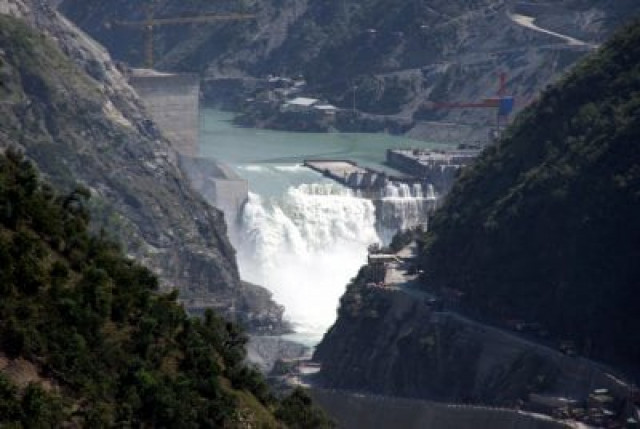India’s obduracy stymies crucial Indus forum meet
Zurich meeting was to discuss a study on sustainability of Indus Basin water resources

PHOTO: FILE
The World Bank Indus Forum convened in Zurich, Switzerland, in mid-October. Attendees at the five-day meeting included Pakistan, India, Afghanistan and China. “The meeting, however, could not evolve consensus on distribution of financial resources among the four countries for carrying out the first of a kind joint study,” Dr Ghulam Rasul, the vice president of the Asia-Pacific region of the World Meteorological Organisation (WMO), told The Express Tribune.
Pakistan scolds India for scuttling diplomatic efforts
Last month, the Indian prime minister threatened to review the Indus Waters Treaty in an attempt to ratchet up pressure on Pakistan in the wake of the Sept 18 deadly attack on a military base in the Uri area of Indian occupied Kashmir. New Delhi blamed it on Pakistan-based Jaish Muhammad militant group without an iota of evidence. Islamabad has warned New Delhi that walking out of the Indus Waters Treaty will be considered as an ‘act of war’.
At the Zurich meeting, Pakistan was represented by former senator Nisar Memon, Dr Ghulam Rasul, Danial Hashmi and Asim. “India wanted donor agencies distribute financial resources equally among the four countries, but Pakistan suggested that the resources be distributed based on the respective share of water being utilised by each country from the Indus Basin,” said Dr Rasul, who also heads Pakistan Meteorological Department.
According to estimates, Pakistan draws 63% of water from Indus Basin, while India’s share is 36 % followed by Afghanistan and China. “China fully supported Pakistan over the issue, while Afghanistan remained silent,” he said.
Indian prime minister reviews Indus Waters Treaty
Currently, the World Bank is looking for a potential donor who could fund this study, said Dr Rasul. “It is going to be the first joint study on water resource assessment of Indus Basin which will be conducted by the four countries. The meeting decided that each country would name its own leading institution for carrying out the study, he said. The study will focus on the impact of climate change on Indus Basin in future, current situation, how climate change will have impact on frozen water resources, life of glaciers among others, he said.
Experts believe India’s obduracy at the Zurich meeting was in fact continuation of its threat to run Pakistan’s rivers dry by revoking the Indus Waters Treaty of the 1960, which has survived three wars and hostilities between the two countries.
Published in The Express Tribune, October 22nd, 2016.



















COMMENTS
Comments are moderated and generally will be posted if they are on-topic and not abusive.
For more information, please see our Comments FAQ